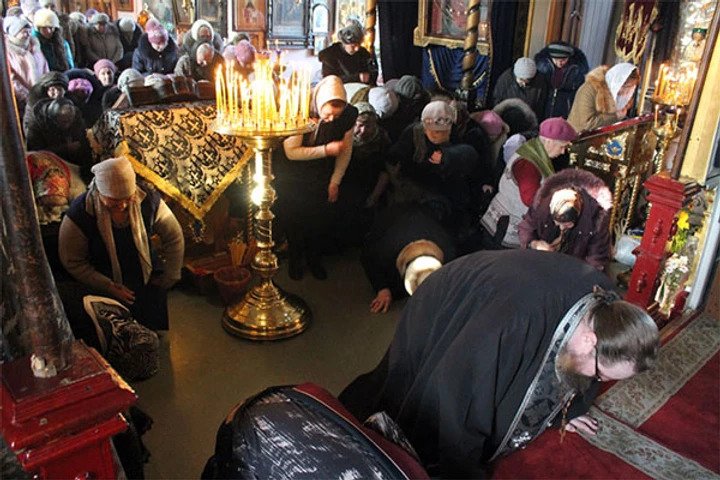“O Lord and Master of my life, take from me the spirit of idleness (ἀργίας), despondency (περιεργίας), love of power, and idle talk (ἀργολογίας).
But give rather the spirit of whole-mindedness (σωφροσύνης), humility, patience, and love to Your servant.
Yea, O Lord and King, grant me to see my own transgressions, and not to judge my brother, for You are blessed unto ages of ages. Amen.” (Lenten Prayer of St. Ephrem)
One of the great paradoxes of the cross-carrying journey, (the cross itself being the greatest paradox, as something that brings victory through defeat), is that I learn to embrace God’s Spirit, of whole-mindedness, humility, patience, and love, through being confronted with, and turning away from, “other” or opposing “spirits,” like idleness, despondency, love of power, and idle talk. That’s why these harmful, other “spirits” are mentioned first in the Lenten Prayer of St. Ephrem, that I may profess my decision, my desire, to turn away from them.
This learning or growth-process, of stretching upward, toward light and peace, while certain voices are calling me downward, toward darkness and chaos, is often painful (another paradox). For example, a “whole-minded” approach to my life, to my God-given vocation, means following that calling by channeling the “whole” picture of who I am in God’s eyes, with “all” my gifts, God-given desires, character, background, challenges and shortcomings, toward Him, by “doing” what and how He calls me to “do.” But “whole”-minded doing is challenged by fragmentation, when God-given desires and gifts are “called” by other voices to take on a life of their own, outside of God and His vision of me. Whole-minded doing is particularly challenged by “idleness” (“argia,” from “a” or the alpha-privative that means “not,” + “ergo” that means “to do”), which means “not” doing what I am supposed to be doing; and “despondency” (“peri-ergia,” from “peri” that means “around” or “beyond,” + “ergo” that means “to do”), which means doing “around” or “beyond” the scope of my vocation. If I embrace these spirits, I “miss the point” of my existence (i.e., I “sin”), losing sight of my God-envisioned purpose.
Conversely, if I turn away from these voices, which may involve pain, like severing an unhealthy relationship or activity, I grow in understanding and knowledge of my God-envisioned self and purpose. That is to say, I “see” myself more clearly. That’s why the above-quoted prayer ends with these words: “Yea, O Lord and King, grant me to see my own transgressions, and not to judge my brother, for You are blessed unto ages of ages.” Amen! Happy 1st Friday of Lent, dear friends! Join our daily, weekday “Morning Coffee” audio-podcasts for some daily inspiration on your Lenten journey! Sign up at: patreon.com/sistervassa. Love from Vienna, Sister Vassa






